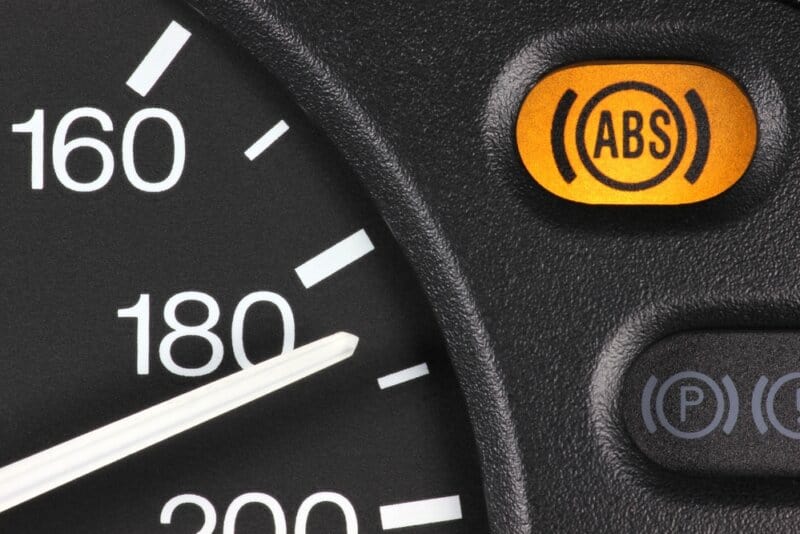Blog
What You Should Know About Anti-Lock Brakes

The one feature on your car that is critical, but is often taken for granted is the brake system.
You most likely have an anti-lock brakes system (ABS) if your car was built within the past couple of decades. According to Popular Mechanics, ABS became required equipment on every new vehicle in the United States in 2013. However, it became standard equipment in vehicles as early as the late 1980s.
While anti-lock brake systems have generally become standard, it is still important to understand how they work, why they are essential, and their limitations.
ABS Car Meaning: What is an Anti-Lock Brake System (ABS)?
Before anti-lock brake systems were common, drivers would find that the wheels of the car would stop spinning and lock-up when they hit the brakes. This could cause the driver to lose control of the vehicle. ABS stops the wheels from locking up, which ultimately helps you to stop faster and prevents the car from skidding out of control.
How Does an Anti-Lock Brake System Work?
Back when drum brakes were standard, drivers were taught to pump the brakes if their car was sliding to prevent the wheel from locking up and have more control over the vehicle. Thanks to anti-lock brakes, it is no longer recommended to pump the brakes because the ABS does it for you.
ABS works by utilizing speed sensors at each wheel. These sensors detect when the vehicle is rapidly decelerating, which indicates that a wheel is about to lock-up. The ABS then rapidly pulses the brakes automatically to prevent the locking from happening.
Why Are Anti-Lock Brakes Important?
Decreased stopping distance
Drivers will find that they have improved stopping power with ABS.
Ability to brake and steer simultaneously
If a driver does not have time to stop before hitting another vehicle or object, the only alternative is to swerve to avoid the collision. ABS makes this possible while also improving traction control.
Insurance discounts
Did you know that your insurance provider may offer a discount if you have anti-lock brakes? Contact them today to learn more.
Safety Tips to Consider

There are some drawbacks to ABS. For example, ABS does not always perform well on snow, sand, or gravel. If you drive on a wet ice road or in poor weather conditions, you still need to take extra precautions to avoid an accident, whether you have ABS brakes or not.
Consider the following braking tips at all times:
- Don’t tailgate! If you find yourself constantly hitting the brakes to avoid rear-ending another driver, then you are probably tailgating and driving too close.
- Brake early. If you see vehicles slowing down ahead of you, do not wait until the last minute to hit the brakes. Stopping short not only adds to wear and tear on your vehicle but also increases the likelihood of an accident.
- Understand that braking distances vary in certain weather conditions. The braking distance can be as much as ten times greater if you drive on an icy road. This means there is a great deal of time between when you initially react and when your vehicle stops. Therefore, it is best to drive slow and keep an eye out for obstacles ahead.
Remember that standard anti-lock brake systems improve the cars we drive, but the most important way to avoid an accident is to be a cautious driver.
Another great way to make sure you’re driving safe is by getting a car insurance policy from Vern Fonk. Start your free quote online, over the phone, or at one of our offices near you and save up to $738!*
*Based on a Q2 2020 study of Vern Fonk customers who reported saving when they switched. View full details


